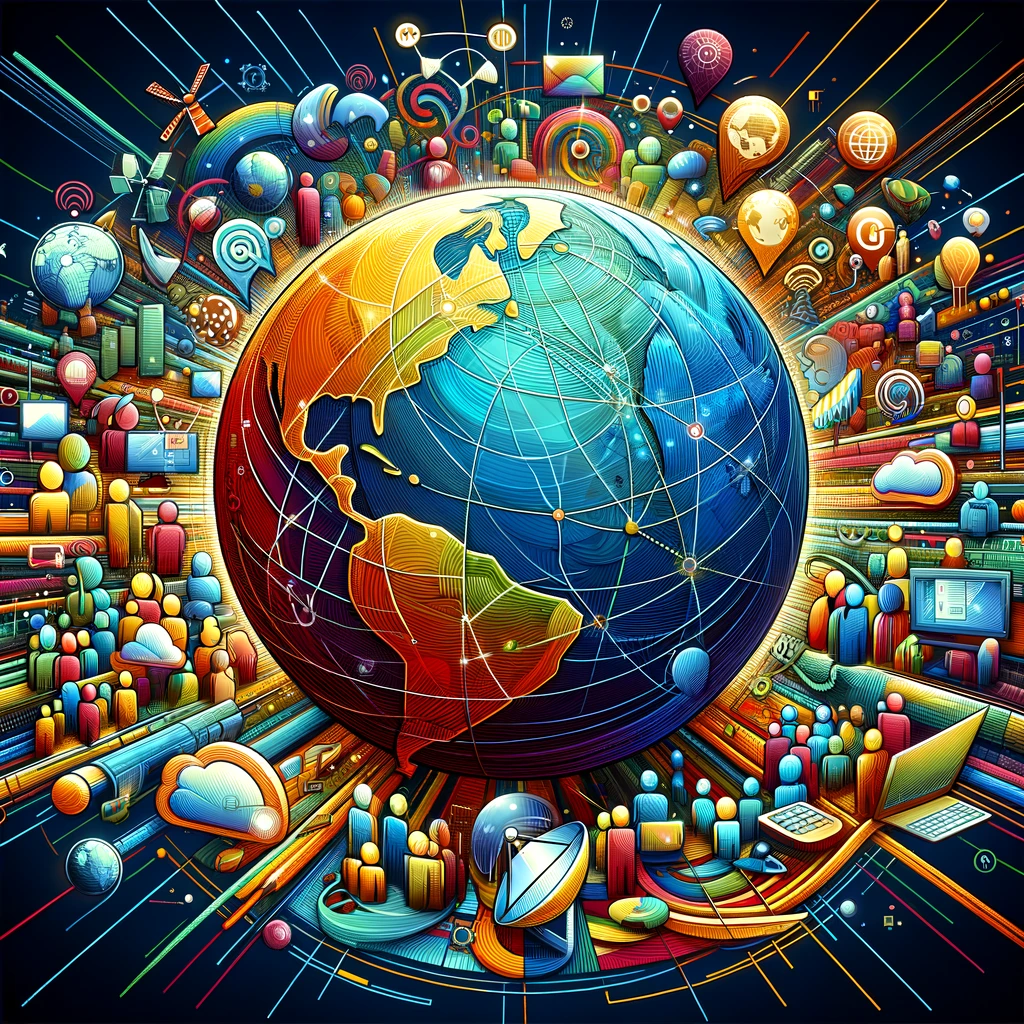By Janessa Abraham and Zahara Johan, Year 12
On the 6th of November 2024, Donald J. Trump was declared the 47th president of the United States. On the 20th of January, Trump will return to the presidency for his second term after his first term in 2016. He will become the first president since 1890 to be elected for two non-consecutive terms after Biden was elected in 2020.
Amid numerous foreign conflicts and geopolitical challenges, Trump’s return to office will mark a pivotal moment in American leadership. He will be confronted not only with American affairs, but with an excess of pressing global challenges, ranging from wars to the climate.
Trump’s reelection has sparked debate and division, as controversy surrounding his policy and background is rife. This leads us to wonder, what will be the consequences of Trump being elected on the US and on a global scale?
Geneva is a diverse and international city as it is home to the United Nations and various multinational organisations and schools.
We interviewed Mr Hamzavi, a history teacher at the International School of Geneva, to find out more about his take on these pressing issues.
Do you think the results of the recent election will have any effect on Ecolint, as an international school containing students from all over the world, including the US, and with diverse political standings?
It is not the first time Ecolint is confronted with this kind of situation (in recent years, suffice it to think of Russia and Ukraine or Israel and the Palestinians) and our priority has always been to privilege the emotional well-being of the students. Maybe the two differences, in this case, are the size of the US community and the fact that almost everyone has their opinion about Donald Trump, but the emotional dimension – the one that is more able to generate tensions – is not as exacerbated as for the other two conflicts I mentioned earlier. I am therefore convinced that they will keep seeing our school as a safe space that favours dialogue and where they can express their ideas and confront them with others as long as it is in a respectful and reasoned manner.
Trump has said that Ukraine is ‘demolished’ and dismisses its defence against Russian invasion. He says they should be focusing on peace and not retaking territory. How do you think this change in attitude between Biden and Trump towards the Russo-Ukrainian war will have an impact on the conflict?
The scenario most specialists have in mind would see Trump tell Volodimir Zelensky that he has to agree to a ceasefire and suggest to Vladimir Putin that he should be happy keeping Crimea and Eastern Ukraine with some kind of a buffer zone between the two countries. This would leave room for negotiation around the topics of Ukraine receiving more weapons or joining the EU and/or NATO. Yet, one must keep in mind that Trump will choose the option that he sees as the most beneficial for him and that things will also depend on European reactions.
Trump plans to ‘begin the largest deportation operation in the history’ of the US, severely tightening laws surrounding immigration from Latin America. What impact do you think this will have on the US?
Immigration is a real issue in the US and massive deportation may appear like an “obvious” answer. The underlying idea is that immigrant workers are taking the jobs of US citizens and driving salaries down, and the expectation is that US workers who have been hit by unemployment and inflation will find new jobs with higher wages. Yet some questions remain. Won’t the rise in salaries be a driver for more inflation? Will there be enough workers in critical sectors such as construction, health and education, hospitality or agriculture where immigrant workers account for more than 20% of the workforce? The final answer will depend on the way these new laws are implemented and, once again, it is relatively safe to assume that Donald Trump will choose the more pro-business options.
Trump has denied the climate crisis and supported fracking at the expense of the environment. How do you think his policies will impact the global fight against climate change and efforts to raise environmental awareness?
One can expect Donald Trump’s policies to have only one aim: to ease regulations in order to lower production costs and foster productivity. This will be achieved both by favouring productions based on fossil fuels and suppressing climate change initiatives whether punitive or incitative. This means that it will be harder for other countries to export environmentally friendly goods to the US while it will be easier for the US to export traditional products, and this will have a lasting negative impact on environmental awareness as it will likely slow down the quest for greener modes of production.
What do you think Trump’s support for Israel will mean for the future of the Israeli-Palestinian conflict and repercussions for Netanyahu?
Donald Trump’s election is the best thing that could happen to Benyamin Netanyahu as the new president is likely to give him free rein in the Middle East. This was the message communicated throughout his campaign and it also matches the ideology of the evangelical Christians that support him. It is also important to remember that he moved the US embassy from Tel Aviv to Jerusalem in 2017 and was instrumental in the signature of the 2020 Abraham Accords. The question will probably not be a real priority for him as there is no direct threat to the US, no need for direct involvement, and – at least for now – no economic dimension.
Is there anything else you would like to say about how you think Trump’s presidency will have an impact on a global scale?
See below…
The U.S. voting process is often criticized for its management challenges. To what extent do you think these issues, such as disruptions at voting sites, impacted the election outcome this year?
The US voting process is problematic, from the handling of ballots to the voting machines, the management of voter lists or voting on a Tuesday… But this year, the final gap between the two candidates seems to indicate that the impact was minimal.
Given Biden’s decision to step down and allow Kamala Harris to lead the Democratic ticket, do you believe this was a strategic choice for the party? Would Biden have had a different chance of winning if he had remained the nominee?
Joe Biden was clearly lagging behind when he was forced to withdraw and it is hard to imagine how he could have caught up with Donald Trump. It will take more time to reach final conclusions regarding Kamala Harris’ performance, but she probably did the best possible job in the time available. By November 5, many voters (more than 50% in swing states) were still saying that they didn’t know her well enough to trust her and vote for her and it is important to remember that postal vote started in some states as early as September, less than two months after she started campaigning. There is this great French expression “avec des ‘si’ on mettrait Paris en bouteille” and it is easy to consider in retrospect that the only valid option for the Democrats would have been for Joe Biden to keep this word and not to run for a second mandate.
There’s been a notable increase in Latino support for Trump despite his public criticism of Mexico and Central America. Why do you think he garnered more support within this demographic?
An obvious answer could be that they found an echo to some Macho culture, but the roots go deeper. Most of them are, obviously, Catholics and share Donald Trump’s conservative values. This is well illustrated by the composition of the Supreme Court with a majority of catholic judges (six out of nine, including three he appointed during his first mandate). In addition, many no longer describe themselves as Latino, but rather as American Latino and they don’t want others to have what they consider an easier access to the American Dream than they had (note that this is quite common among second-generation migrants as could also be seen in the UK with Kemi Badenoch or France with Jordan Bardella).
Comparing tax plans, Harris proposes benefits like $25,000 for first-time homebuyers, tax cuts for lower-income groups, and higher taxes for the wealthy, while Trump’s plan offers tax cuts for high-income households and businesses, which ultimately increase the tax burden on lower-income earners. Why do working-class Trump supporters still back his tax policies?
There is a US culture that remains strongly individualistic and is based on the “American Dream”, the idea that every person has the freedom and opportunity to succeed and attain a better life. Donald Trump introduces himself as one of its products, conveniently forgetting that he started his professional career with a 1 million dollar gift from his father. In this context, many people see taxes – even when they are supposed to play in their favour – as a threat to their own opportunities and think that any restriction to the rich getting richer will negatively impact them.
With Trump facing criminal charges and Harris’s background as a former attorney general, why do you think Harris is sometimes perceived as untrustworthy? For example, some opponents accuse her of being selected for reasons of race or gender, labeling her selection as “affirmative action” rather than merit. Meanwhile, Trump, who is facing fraud charges, has avoided prosecution due to presidential immunity. How do you feel about his ability to evade these charges while in office?”
Affirmative action has long been under fire, and the Supreme Court ruled against it last year in the case of university admissions. Again, this is seen as unfair in the context of the American Dream competition.
Donald Trump avoiding prosecution is the result of a judicial system that is supposed to allow for fair trials but can be abused by whoever has the money and the knowledge to use every possible niche.
The Democratic Party has suggested that a Trump victory could pose a threat to U.S. democracy. How valid are these concerns, and what risks might they refer to; such as the potential for authoritarianism or increased fascistic tendencies?
There are two dimensions to your question. The first is that Donald Trump will have full control of Congress, but this has happened often in US history. If there is a potential threat, it comes from the fact that the judges he has appointed to the Supreme Court are here to stay for decades, that will likely have an opportunity to appoint two more younger judges during his term, and that he will continue appointing more Federal judges (such as the ones who have made prosecuting him almost impossible). He is also someone who will not appoint people who do not obey him. This means that there will not be a Mike Pence (his former Vice-President who refused to reject the result of the 2020 elections) around him because he has had four years to pick up his team. In addition, when he was first elected in 2016, most elected members of the Republican party were not Trumpists, whereas they will all be in the incoming House. Considering Donald Trump’s character there is every possibility to see a rather authoritarian or, at least, illiberal way of system emerge, but we are still far from a fascist state.
Trump and Putin’s relationship has been unpredictable, especially with recent military support from North Korea for Russia in the Ukraine conflict. What are the potential directions of these alliances, and what impact might Trump’s proposed tariffs on China have on U.S.-China relations, global trade, and Russia’s role in this dynamic?
I will give one combined answer to the two questions above. Donald Trump has a conception of international relations that is called on “transactional”. This means that he begins by defining rewards or targets and manages by exception if the targets are not met. The consequence of this approach is that there is no ideological positioning, but only the quest of the best possible outcome for him and the USA. This means that he will collaborate with any leader and any country if this is the best solution from his perspective at a specific point in time.
At the same time, we also know that he likes leaders that he can treat like “bros,” such as Vladimir Putin or Xi Jinping. This is why it is easy to predict difficult times for Ukraine or Taiwan, which he is certainly capable of dumping in exchange for a spectacular agreement with these leaders. This is also why Europe is in a weak position vis-à-vis Trump: It can hardly speak with one voice, and Ursula von der Leyen cannot become a bro.
The only certainty at this stage is that he will use tariffs as his first tool and that this will have consequences for the whole world and define, in particular, his relationship with China. What many Europeans fear is some kind of a domino effect with China targeting the EU market if the US is closed and this would be especially damaging as the German economy is not in good shape and is one of the most dependent on its exports to the US. Overall, it is hard to see a positive impact of these policies for the world, and even for the internal US market if US companies have to pay more for what they must import and other economies are weaker and will import less US goods. Yet, although Donald Trump’s policies are likely to go a few steps further, Joe Biden’s IRA has already shown that one of the goals would be for multinationals to relocate their production in the USA and many things will depend on the evolution of the international context (a war in the Middle East could cause oil prices to reach new heights while a Chinese embargo on Taiwan would see the price of electronic component take the same direction).
Trump has been vocal about his stance on the Middle East, recently indicating support for Israel amidst its conflict with Gaza, Lebanon, and tensions with Iran and Iraq. What trajectory could we expect in U.S. relations with Israel and the broader Middle East, now that he resumes office?
The USA will more than ever back up Israel, especially under its present leadership. Some kind of prolonged low-intensity war in Gaza, the West Bank and Southern Lebanon is a likely outcome that could be made possible by US financial and military aid, as no one seems able to impose a solution. But some kind of a showdown between Israel and Iran is to be expected. Iran is getting closer every day to reaching nuclear capability and the question is bluntly to determine how much damage can Israel inflict to the Islamic Republic to stop the nuclear programme and force Tehran to reduce its support to Hezbollah, Hamas or the Houthis, without starting a regional crisis involving the Gulf monarchies that could be the targets of Iranian retaliation measures.
Beyond that, we are likely to see the USA relaunch a strategy similar to the one that led to the Abraham Accords.
With Italy and other countries leaning toward more restrictive policies following the overturning of Roe v. Wade, how could the U.S. election outcome impact the global shift toward right-wing governance and influence other governments’ policies?
Illiberal democracies as we tend to call them now will be reinforced and the first words of Hungarian Prime Minister Viktor Orbán indicate that this will be a likely trend. At the same time, Giorgia Meloni, the Italian Prime Minister has indicated that this election was a strong signal that it is time for Europe to become stronger. It is therefore difficult to assess the long-term consequences, but the initial winners will be the right-wing governments ans political parties that play on the fears of their populations.
One can also add that similar things will happen in the rest of the world (Jair Bolsonaro, for instance, has congratulated Donald Trump for his victory), but it will also contribute to the development of a “Global South” that rejects some of the values that emerged as winners after the Second World War such as internationalism human rights, or solidarity.
Trump has expressed mixed reactions to Project 2025, a plan to reshape the federal government, with significant contributions from his political allies and partners. With proposed policies such as dismantling certain federal agencies and altering environmental regulations, do you think these policies would be implemented now that he is president? How might this impact both the U.S. and globally?
Donald Trump is not the kind of leader who would want to be held to a plan, so how much of Project 2025 he would actually try to implement is hard to predict, but the dismantling of federal agencies is a clear priority for him and his new partner, Elon Musk. This will add to all the other measures he intends to take, but the additional global impact will probably be limited, but the situation within the US, will be very different. It will for instance, allow him to put more pressure on blue states to follow his programme (think of the pressure on California as he threatens to withdraw federal funding for environmental agencies that try to prevent the current fires if the state doesn’t agree to divert more water to satisfy the need of the agriculture instead of protecting the environment). Overall, it will mean a priority to business at the expense of minorities, the environment, education, and health and give more power to the rich, leading us back to the issue of the threat to democracy and the risk of seeing the birth of a genuine plutocracy.



